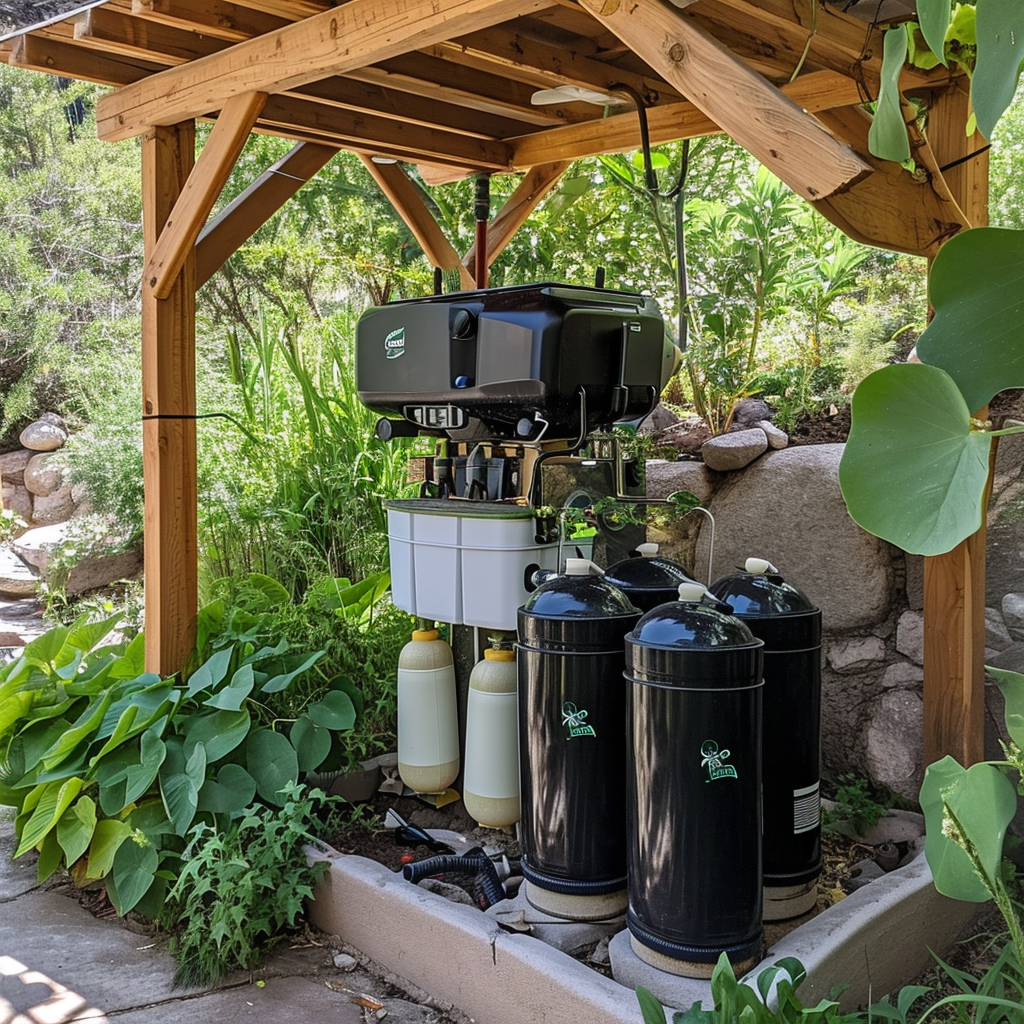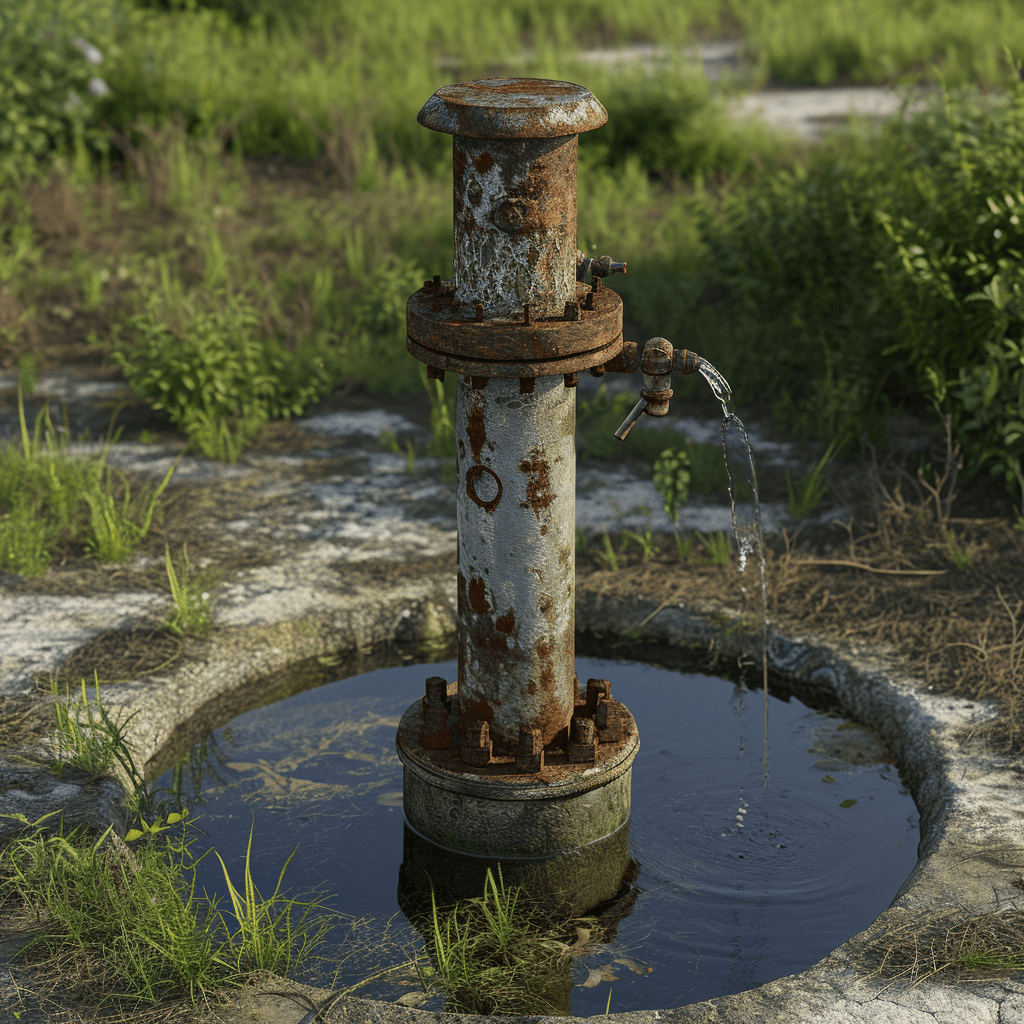Living off grid can be a rewarding and self-sufficient way of life. You’re able to disconnect from the grid and rely on your own resources for energy, food, and water. When it comes to water, many off-grid enthusiasts turn to traditional water wells. But what if you’re looking for an alternative to this age-old method? Well, you’ve come to the right place! In this article “What Is The Alternative To A Water Well“, we’ll explore some alternative options to water wells that may suit your off-grid lifestyle even better.
One alternative to a water well is rainwater harvesting. This method involves collecting and storing rainwater for later use. It’s a sustainable and environmentally friendly way to access water, especially in areas with regular rainfall. There are various systems available, from simple rain barrels to more complex setups that include filtration and purification systems. We’ll go into more detail on the benefits and considerations of rainwater harvesting in the article.
Another option for off-grid water supply is using natural springs or streams. If you’re fortunate enough to have access to a spring or stream on your property, you can tap into this free and abundant water source. However, it’s important to ensure the water is safe for consumption by properly testing and treating it, as natural water sources can carry contaminants. We’ll discuss the pros and cons of utilizing natural springs or streams and provide useful tips for ensuring the water quality.
Additionally, if you’re in a location with abundant sunlight, you might consider using solar-powered water systems. These systems use solar panels to generate electricity, which can power pumps and filtration systems to extract and purify water. Solar-powered water systems are a sustainable and cost-effective option, especially in sunny regions. We’ll delve deeper into the workings of these systems and explore their benefits and limitations. So, stay tuned for more information on these alternatives to water wells!
Exploring Alternatives to Water Wells
Rainwater Harvesting
Rainwater harvesting is a method that allows you to collect and store rainwater for various purposes. By installing a rainwater harvesting system on your property, you can capture rainwater from your rooftops and direct it into storage tanks or other containers. This water can then be treated and used for household chores, irrigation, and even drinking after proper filtration and purification. Rainwater harvesting is an excellent alternative to water wells, especially in areas with reliable rainfall.
Collecting and Storing Surface Water
If there are natural bodies of water in your vicinity, such as lakes or ponds, you can explore the option of collecting and storing surface water. By utilizing a water pump or gravity-fed system, you can draw water from these sources and store it in large containers or tanks. Surface water can be a reliable water source, but it’s essential to ensure that the water is clean and safe for use. Water testing and regular maintenance of your collection system are crucial for maintaining water quality.
Using Water from Streams and Rivers
Streams and rivers can also serve as potential alternatives to water wells. By setting up a water intake system, you can divert water from flowing bodies of water and supply it to your home or property. However, keep in mind that the quality and availability of water in streams and rivers can vary depending on the season and location. It’s important to assess the water source’s potential and ensure that you follow any local regulations regarding water usage.
Utilizing Springs and Natural Sources
In some areas, natural springs can provide a consistent source of fresh water. Springs are created when groundwater naturally flows to the surface, usually emerging from cracks or crevices in the earth. If you have access to a spring or live in an area with known spring sources, you can tap into this water supply. Collecting spring water requires proper infrastructure, such as a well-built spring box or collection system, to ensure that the water is clean and protected from outside contamination.
Tapping into Municipal Water Sources
If you live in or near a populated area, tapping into the municipal water supply is a viable alternative to drilling a well. Municipal water systems are typically regulated and treated to ensure safe drinking water. Connecting your property to the municipal water supply may involve coordination with local authorities and the installation of appropriate plumbing infrastructure. While it may require upfront costs and ongoing fees, accessing municipal water can provide a reliable and convenient water source.

Installing Water Tanks
Installing water tanks is another effective way to secure a water supply without relying on wells. Water tanks, available in various sizes and materials, can be filled with water from rainfall, surface water sources, or delivered water. These tanks can then be connected to your home’s plumbing system, providing a readily available supply of water. Regular maintenance and monitoring of water levels are crucial to ensure an adequate water supply at all times.
Utilizing Groundwater from Aquifers
Similar to wells, aquifers are natural underground reservoirs that hold water. If you live in an area where known aquifers exist, you might be able to access this groundwater and use it as an alternative to wells. Depending on the geological conditions, aquifers can provide a consistent and abundant source of water. It’s important to work with professionals who understand the local geology to identify the most suitable locations for accessing groundwater.

Using Desalination Techniques
If you live in coastal regions where freshwater resources are scarce, desalination can provide an alternative water source. Desalination is a process that removes salt and other impurities from seawater, making it suitable for human consumption and other uses. While desalination plants are typically large-scale operations, advancements in technology have made smaller-scale desalination systems available for individual or community use. While desalination requires energy and can be costly, it can be a valuable solution in regions where other water sources are limited.
Implementing Water Recycling Systems
Water recycling systems are a sustainable solution that allows you to reuse water for various purposes. Greywater recycling captures water from sinks, showers, and laundry, treats it, and redirects it for irrigation or toilet flushing. On a larger scale, wastewater treatment plants can clean and treat sewage water, making it safe to release back into natural bodies of water or to be reused for industrial purposes. Implementing water recycling systems can help conserve water resources and reduce reliance on wells or other traditional water sources.
Exploring New Technologies for Water Sourcing
Advancements in technology continue to offer new possibilities for accessing and sourcing water. Innovations such as atmospheric water generators, which extract water from the air, and solar-powered water purification systems are becoming increasingly popular. These technologies can provide alternative water sources in regions with challenging access to traditional water supplies. It’s worth exploring these new technologies and considering their viability for your specific need.
In conclusion, there are various alternatives to water wells that you can explore depending on your location, access to resources, and water requirements. From rainwater harvesting and surface water collection to utilizing springs, municipal water sources, or even modern technologies, there are options suitable for different situations. Assessing the availability, quality, and sustainability of these alternatives will help you find the best solution for your water needs, ensuring a continuous and reliable supply without depending solely on water wells. So, take the time to understand your options and make an informed decision.




